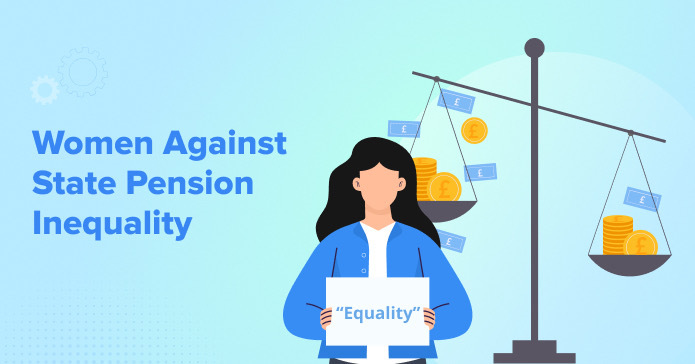In recent years, the Women Against State Pension Inequality (WASPI) campaign has gained significant momentum. Thousands of women in the UK have been impacted by changes to the state pension age, and their stories have resonated with many.
This blog post aims to shed light on the WASPI movement, its objectives, and how it affects women across the nation. Whether you're a WASPI activist, a women's rights advocate, or a financial advisor, this guide will provide valuable insights into the ongoing struggle for state pension equality.
Understanding the WASPI Campaign
What is Women Against State Pension Inequality (WASPI)?
WASPI is a group that campaigns against the unfair changes to the state pension age for women born in the 1950s. These changes were introduced without sufficient notice, leaving many women without enough time to make alternative financial arrangements. The campaign highlights the financial hardship and emotional distress caused by these changes.
The Origins of the WASPI Movement
The WASPI campaign began in 2015 when a group of women decided to take a stand against the government's policy. They were shocked and dismayed to learn that they would have to wait several more years to receive their state pensions. This sudden shift disrupted their retirement plans and created financial uncertainty for many.
The Mission of WASPI
WASPI's primary goal is to achieve fair compensation for the women affected by the state pension age changes which paves the way for vast poverty among women over 60 years old in the UK. The campaign also aims to raise awareness about the issue and advocate for policy changes that ensure such injustices do not occur in the future.
Department of Work and Pension Update on WASPI
The work and pension inequality movement is now funded by the Department of Work and Pension (DWP). The "WASPI Redress Application" pertains to a procedure whereby qualifying females born from April 6, 1950, through to April 5, 1960, can seek redress for the heightened state pension age. The Parliamentary and Health Service Ombudsman proposes a compensation scale of £1,000 to £2,950.
Who is Eligible for WASPI Compensation?
The Compensatory Initiative for State Pension Age Inequality (CISPAI), spearheaded by the Women Against State Pension Inequality (WASPI), extends its benefits exclusively to women born from April 6, 1950, to April 5, 1960. Those belonging to this demographic have been greatly affected by the escalation of the qualifying age for State Pensions, which saw an uptick from 60 to 65, and eventually 66, for both genders.
How to Apply for WASPI Compensation?
To initiate the WASPI Compensation Claim, consider the following guidelines:
- Make sure your date of birth falls within April 6, 1950 and April 5, 19601.
- Gather relevant documents that confirm your birth date and the influence of the pension age adjustment on your retirement preparations.
- Use the WASPI calculator to get an approximate value of your possible compensation.
- Contact the Department for Work and Pensions (DWP) to discover more about the claim procedure.
- Abide by the DWP’s directives to lodge your claim, which might involve completing certain forms with factual details and presenting corroborative documents.
It would be advised to stay updated with new redressed as WASPI is currently a hot topic in both the DWP and Parliamentary and Health Service Ombudsman`s agenda.
The Impact of State Pension Age Changes
Financial Hardship for Affected Women
The changes to the state pension age (66 years old as of 2024) have had a profound impact on the financial well-being of many women. Increasing poverty among women aged over 60 due to the new pension changes made it necessary for initiatives like WASPI.
Emotional Distress and Mental Health
Beyond the financial implications, the state pension age changes have also caused significant emotional distress. Many women have experienced anxiety, depression, and a sense of betrayal. The sudden shift in retirement plans has disrupted their lives and created a sense of uncertainty about the future.
Case Study: A Personal Story
Consider the story of one woman who was never notified about the change. She found out through a friend that she wouldn't receive her state pension until she was 66, despite having paid full stamp since she was 15. This realisation was a bitter blow, as she had expected to retire alongside her husband. The lack of communication from the government left her feeling betrayed and
Conclusion
The Women Against State Pension Inequality (WASPI) campaign is a vital movement that addresses the injustices faced by women affected by changes to the state pension age. By raising awareness, advocating for compensation, and building a supportive community, WASPI continues to fight for fairness and justice. Whether you're a WASPI activist, a women's rights advocate, or a financial advisor, your support can make a difference in achieving the campaign's goals.
The ever-increasing state pension age causes hardship among many who anticipate a peaceful retirement, every year that`s taken from it chimes a sort of injustice, but specifically for women aged over 60, this hardship folds twice as much. Therefore movements like WASPI and providing them financial security by government administrations is utterly important.













